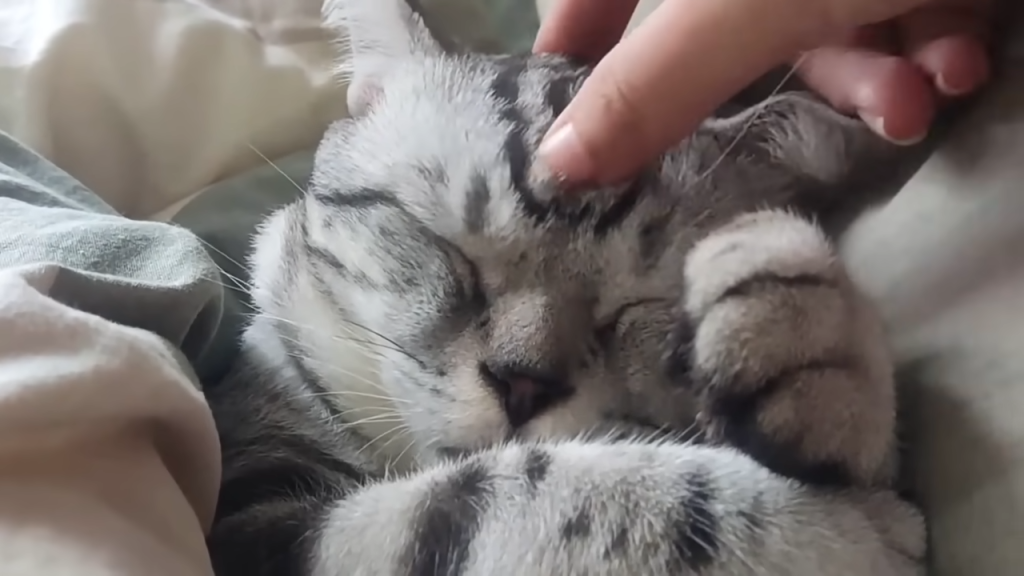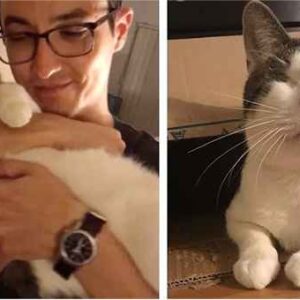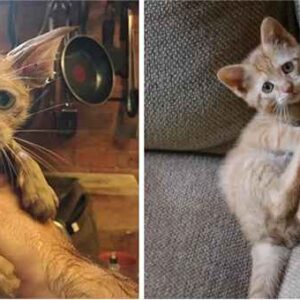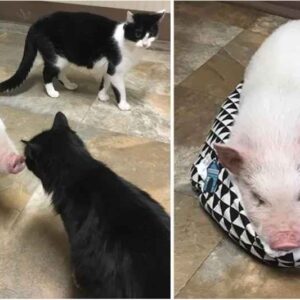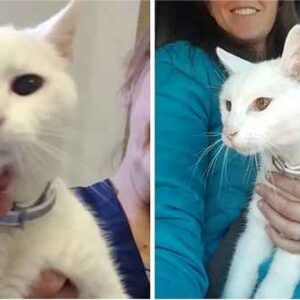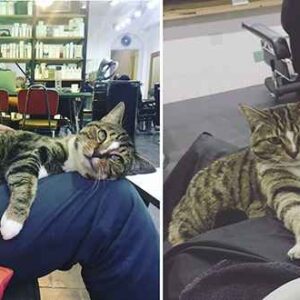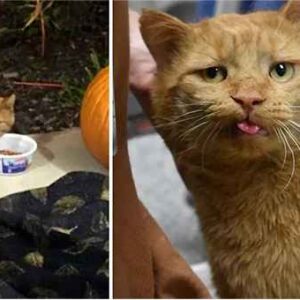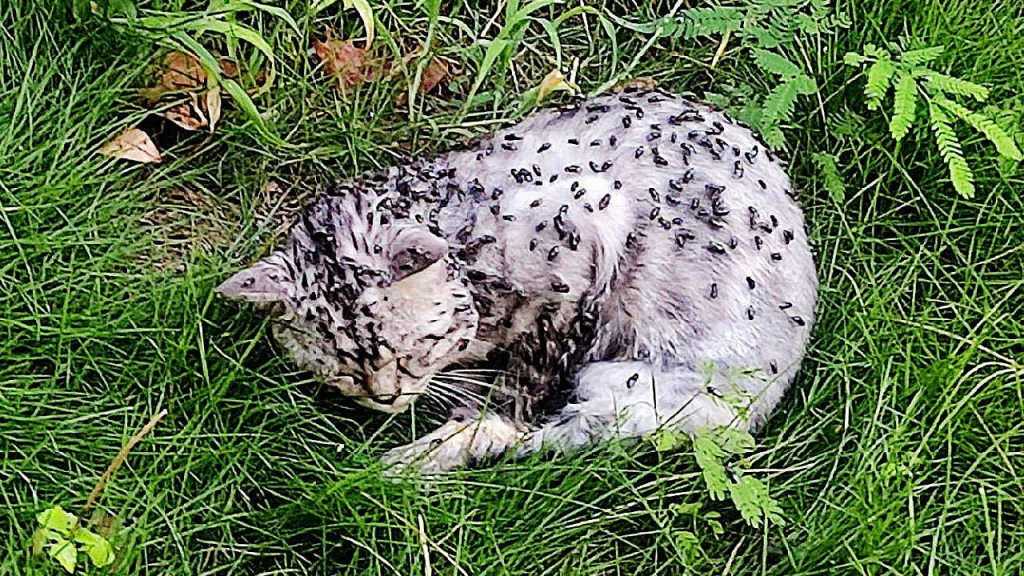
The first time I saw the kitten, it was lying motionless on the grass, surrounded by flies. At first glance, I thought it was already dead. But when I called out, it responded faintly, its breaths shallow but persistent. The sight was heart-wrenching—a fragile life fighting to hold on. I quickly found a cardboard box, placed the kitten inside, and noticed it opening its eyes, weak and unwilling to eat or drink.
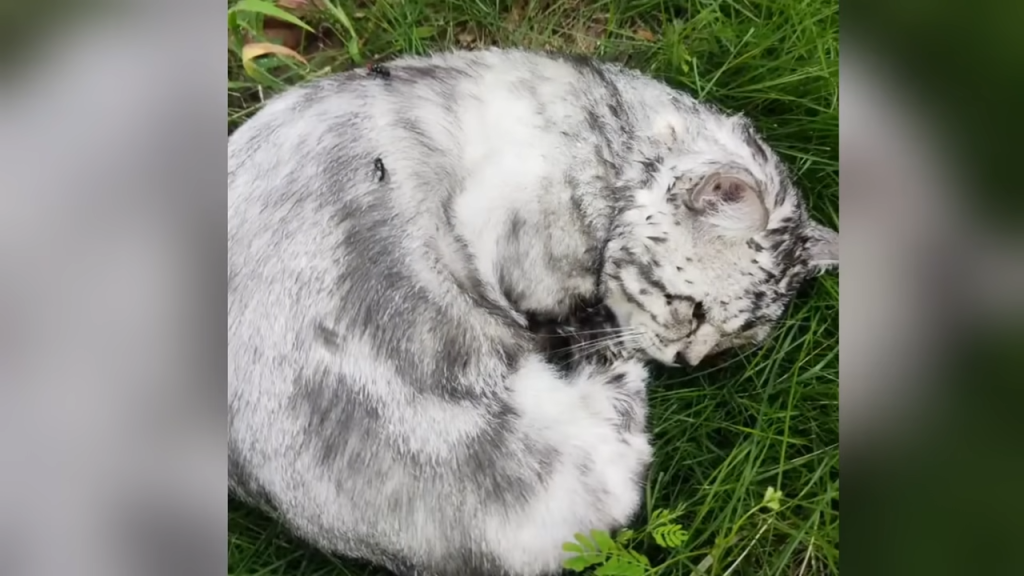
To my horror, its tiny body was crawling with white fly larvae, a sickening sight that made my stomach turn. Despite its injuries and the parasites, the kitten seemed to gain a little strength on the way home. I stopped by a pet store to buy food, and to my relief, it had a good appetite. Its hind legs, however, appeared injured, and it wouldn’t let me touch them.
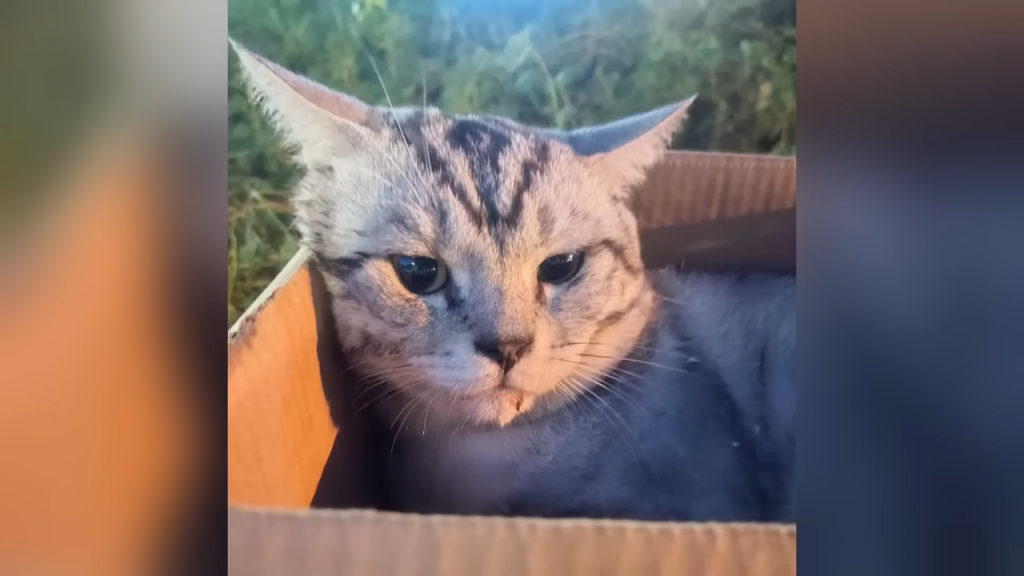
I rushed it to the hospital, where the vet discovered maggots had burrowed into its wounds, even near its anus. The kitten endured a painful disinfection process, its tiny body twitching with discomfort. An X-ray revealed multiple fractures in its hind legs and paws. Hospitalization and surgery were necessary, so I arranged for treatment.
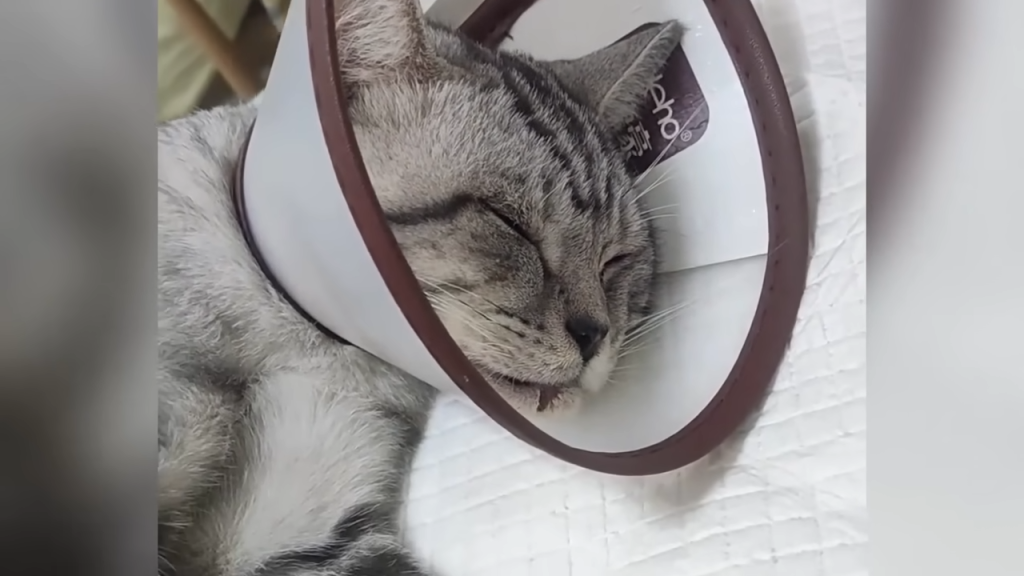
Despite its suffering, the kitten showed incredible resilience. It didn’t cry or struggle, as if it understood we were trying to save it. During the days leading up to surgery, I visited often, bringing it canned food it eagerly devoured. Though it struggled to move, its spirit remained strong. I encouraged it, offering comfort and gentle words to calm its pain.
Surgery day came, and the vet skillfully treated its fractured legs and spayed it to prevent future complications. Recovery was slow, and for days, the kitten was listless, occasionally crying out in pain. Yet, it showed determination, attempting to lick its wounds and sit up despite the discomfort.
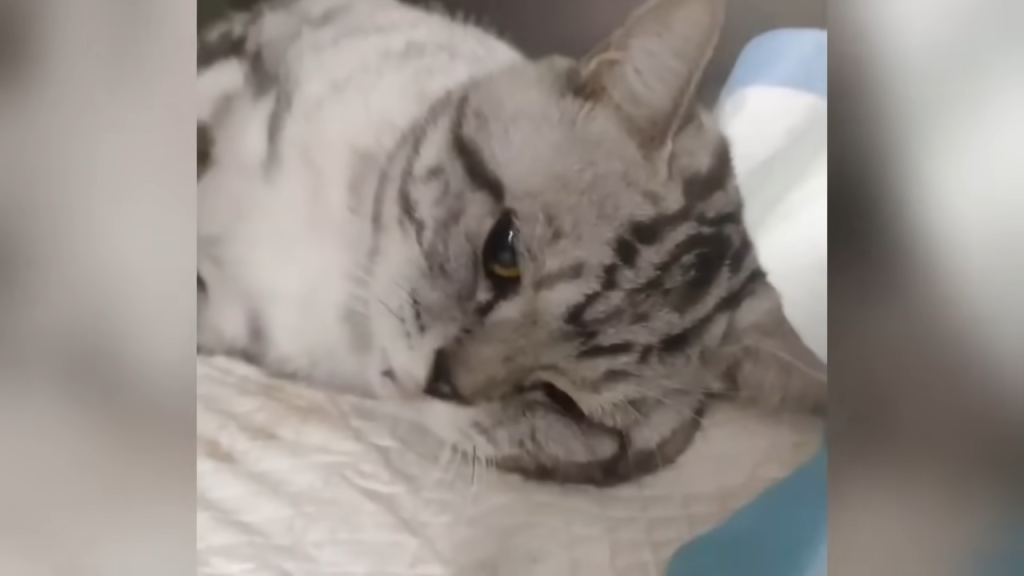
By the sixth day, it began regaining its strength. Its stitches looked better, and it could sit comfortably, though resting flat was still preferable. By day eight, it managed to stand on its own while eating—a significant milestone. I decided to name it “Nineteen,” after the day we met, August 19th, marking the beginning of its new life.
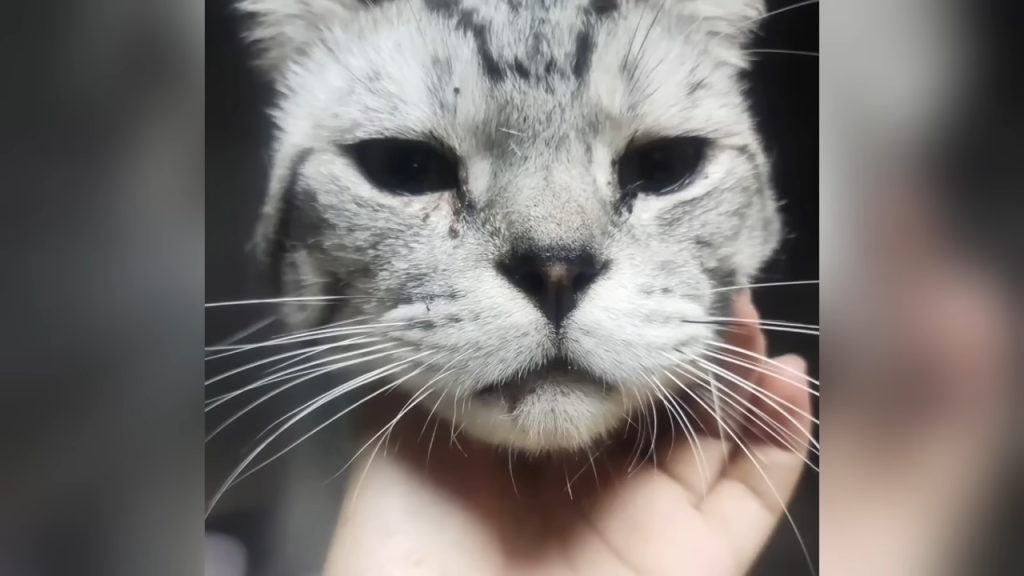
Once Nineteen came home, it adapted quickly to its new environment, though it remained cautious. It refused to stay in the cage, preferring to explore. Nineteen’s playful side soon emerged—it chased toys, rubbed its face after meals, and even grew fond of cat treats. Over time, it gained weight and its coat became glossy, a sign of good health.
A month ago, Nineteen had been on the brink of death, surrounded by flies and despair. Today, it is a happy, healthy kitten, full of energy and love. With a cozy bed, endless treats, and a devoted owner, Nineteen’s life is now one of comfort and joy. This remarkable transformation is a testament to the power of kindness and second chances. For Nineteen, life is now filled with simple pleasures—meals, toys, and the love of a caring companion.
